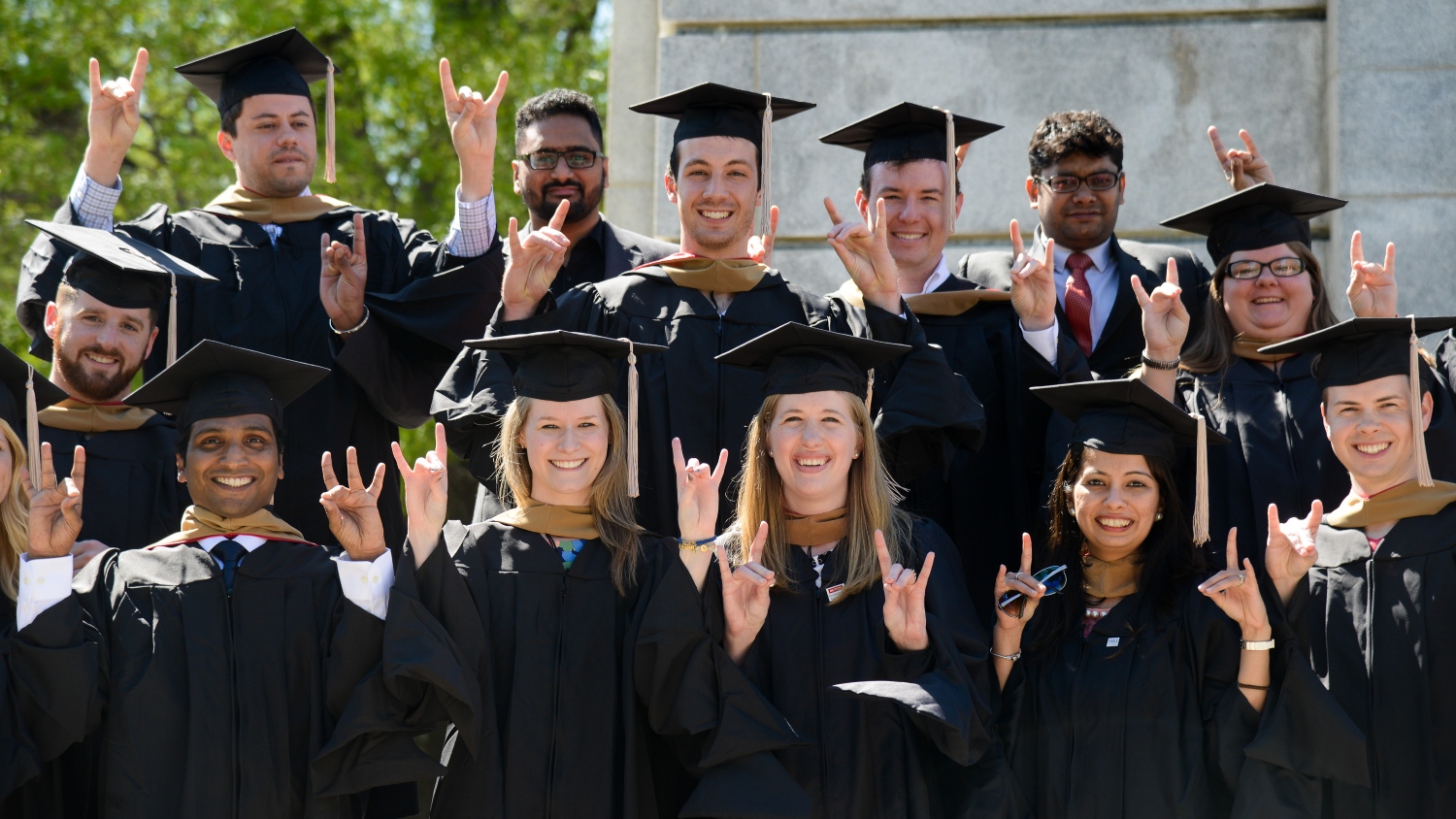By Vikas Anand, associate dean for academic programs and professor of management, innovation and entrepreneurship at Poole College of Management. This post was originally published on Dr. Anand’s blog.
Years ago, an MBA program applicant asked me if I could describe the characteristics of students who had been most successful after graduation. It was an important question, but at the time, I couldn’t answer him very well. I hadn’t thought about it that much, because I had focused more on the characteristics of students who succeeded during the program – rather than students who had experienced success a few years out.
But the question was intriguing enough to get me thinking.
Because I stay in touch with my students and have current information about many of them, I went through my class rosters and developed a list of about 20 former business students who I like to call superstars – students who had been extremely successful after completing their degrees. I pulled out a few of their old class projects and started thinking more deeply about them. What were their key characteristics as students? As I reflected, I was surprised to realize that they had many of these traits in common.
1. Passion
All these superstar students were marked by one primary thing: passion. They were each passionate about something of interest – and not always something business-related. Whether mergers and acquisitions, international experience or animal rights, these individuals showed passion on the ground – backing it up with action, not just words. In fact, I sometimes discovered their interests long after I knew them well. They were more committed to acting on the passions inside them than they were simply saying something about it.
One of these students, now a rising executive in a Fortune 100 company, felt strongly about women’s rights. When speaking with her about it, you could immediately discern her depth of knowledge. It was obvious that she had read about the topic and explored its various facets. Additionally, she had volunteered with nonprofits focused on championing women’s rights. Once you met her, you were unlikely to forget her – and if you ever needed information about this topic, she always came to mind.
Why does passion in individuals matter so much? It’s unclear. Perhaps people with passion tend to be remembered or respected more. Perhaps they possess a certain depth that comes across in conversations with them. Or perhaps they bring this same level of passion to their work – because being passionate isn’t just something they do, but something they are. Whatever it is, it seems to work wonders for them.
2. Positivity
Superstar students are also positive. When they entered a room, you could feel the energy level increase – their very presence increased confidence that problems would get solved and things would get done. However, this is obviously a very intangible characteristic. What creates positivity in an individual? It’s hard to say, but their refusal to quit at the first sign of a problem seems to have something to do with it.
Psychologists have completed hundreds of studies looking at a concept called positive affectivity – an individual’s ability to hold positive emotions in most circumstances. What they’ve found is that when individuals look at every situation positively, they are more likely to view them as opportunities rather than threats. And because negative emotions like anger, frustration and sadness are known to make individuals consider fewer alternatives and make poorer choices, individuals who remain positive are likely to find superior solutions. When encountering major setbacks, they will actively look for workarounds rather than feeling sorry for themselves. Put simply, they exemplify the first half of Confucius’ time-honored statement: “He who says he can and he who says he can’t are both usually right.”
3. Ownership
When it came to their studies, superstars took control of their learning. These were not students who checked boxes to get a degree, but students who actively leveraged their time in the program of study (and afterwards) to develop themselves. Throughout their time in the program, they didn’t opt for the easy path. Rather, they sought suggestions from advisors, thought about their own passions and futures, talked to multiple people and then chose courses and paths that worked best for them.
Another former superstar, for instance, went the extra mile to study subjects of interest to her. Rather than simply enrolling in a university course to learn Chinese, she decided to help a Chinese student learn English – which allowed her to diligently practice her Chinese language skills for two years. Later, she completed an independent study to better master the material from a previous course. Now, years later, she continues to seek opportunities to learn.
Interestingly, many of these superstars continued to focus on learning after graduation. Of the ones I am in touch with, almost all of them regularly send and seek out book recommendations. They never really stop being students, and they never let anyone else disrupt their learning.
4. Resilience
One characteristic I find particularly striking about superstars is their ability to handle adversity – not letting one incident drag them down or create excessive negative emotion, but moving on and not dwelling on the failure or adversity. Many of these students demonstrated an incredible ability to bounce back from adverse situations.
One example that stands out is a situation involving a project I worked on with a student. Due to a mix-up, I did not take care of some key paperwork before leaving the country for a trip – and because of my negligence, he was unable to participate in some activities in the summer and missed out on a major funding opportunity. The student had every right to be mad at me, and had he been, I would not have held it against him. Instead, he was extraordinarily gracious. He wrote me a note about how he enjoyed working with me and has kept in touch with me since then. Because of his class and graciousness, he made me feel indebted to him without even knowing it. Whenever I have had the opportunity to do something for him, whether it’s putting in a word for a job application, writing a letter or forwarding a career opportunity, I have done it with utmost zealousness. And this is not simply my own experience – it’s something that I have heard from multiple executives and faculty. When someone acts with class while dealing with adversity, people notice.
5. Diligence
Finally, superstars have a strong grasp of their work responsibilities matched by a strong work ethic. They displayed an extraordinary commitment to get the job done – no matter how many hours it took. They hated to ask for extensions or make excuses, and they found ways to balance their work and play – sometimes compensating for particularly busy weeks by taking the following few days off, for instance.
What I especially noticed about them was their awareness of their workload. They constantly looked at lists and schedules (interestingly, almost all of them preferred pen and paper – which may or may not be coincidental) to understand the time commitments they had to make in the weeks ahead. Then, they strategized accordingly. If there was ever a need to compromise the quality of one project in order to excel on two others, they made that call early. If there was ever a need to negotiate a deadline, they did that early, too. At the end of the day, they were dependable – and you could count on them to deliver high-quality work in a timely manner.
Recruiting for Success
This unscientific, personal list isn’t comprehensive – and it’s not to say that students who don’t possess all of these five traits cannot succeed. However, it seems that individuals who have these traits have a higher probability of future success – and if I was a recruiter with some ability to assess candidates on these characteristics, I’d hire the ones who met the above criteria every time.
- Categories:



